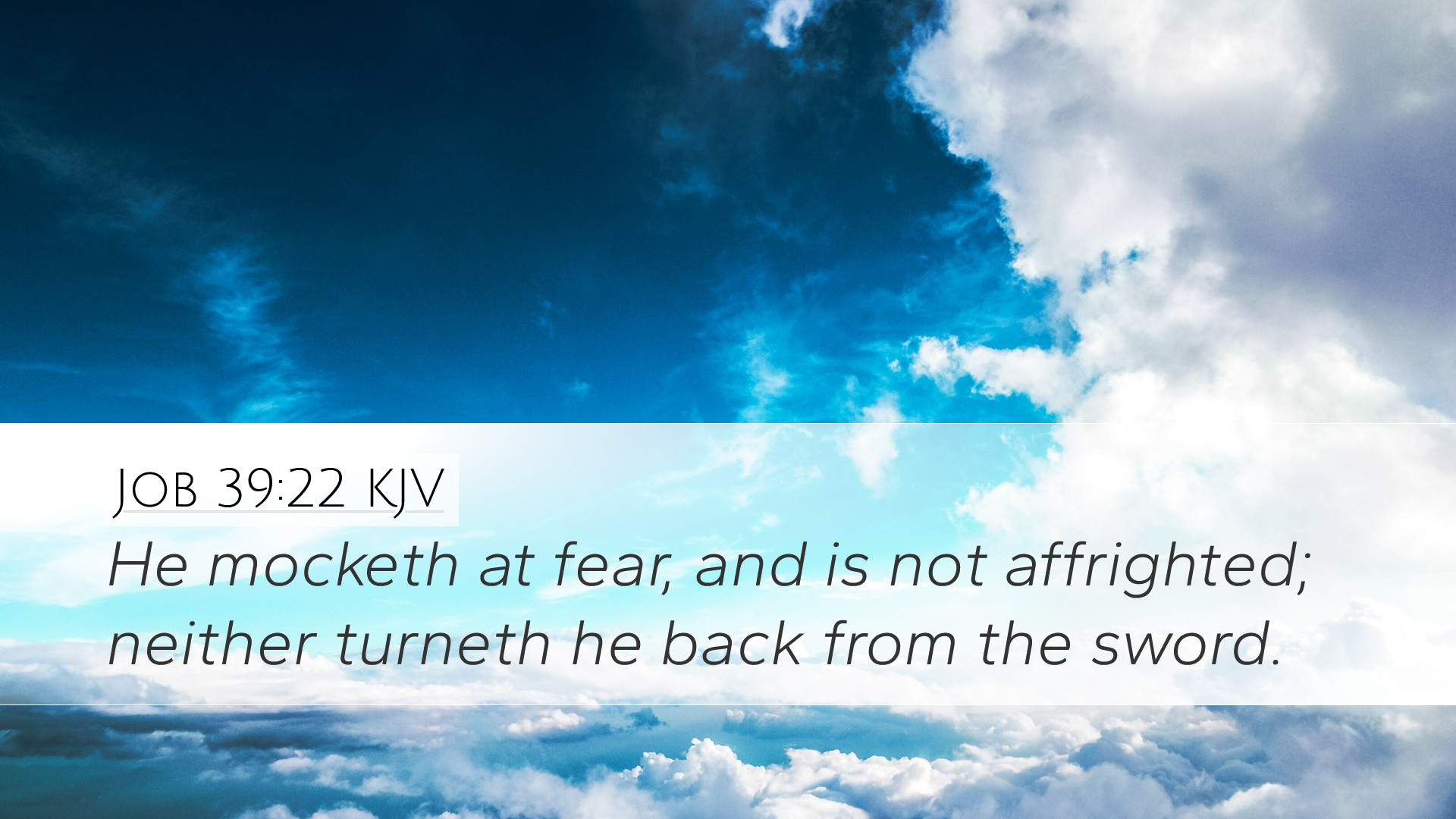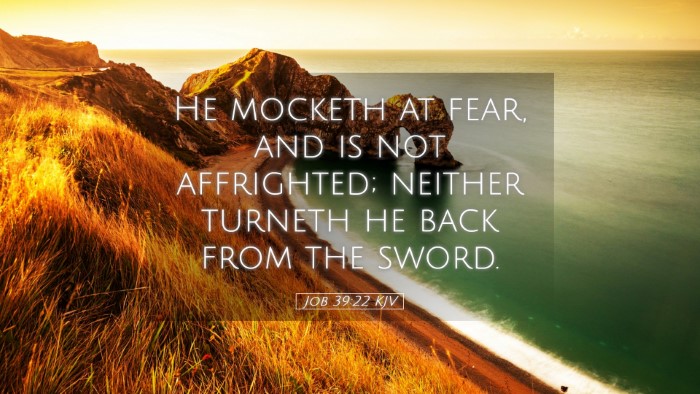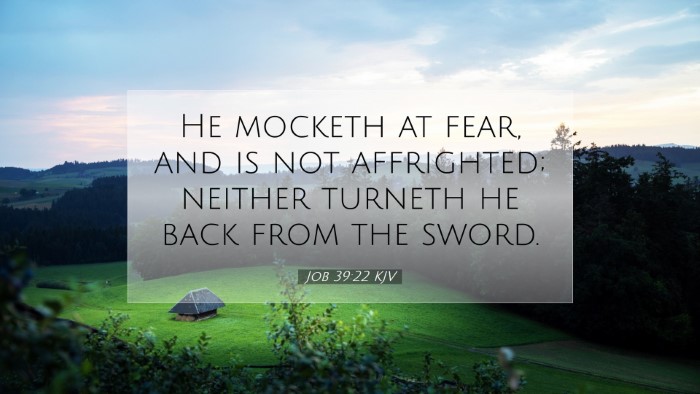Old Testament
Genesis Exodus Leviticus Numbers Deuteronomy Joshua Judges Ruth 1 Samuel 2 Samuel 1 Kings 2 Kings 1 Chronicles 2 Chronicles Ezra Nehemiah Esther Job Psalms Proverbs Ecclesiastes Song of Solomon Isaiah Jeremiah Lamentations Ezekiel Daniel Hosea Joel Amos Obadiah Jonah Micah Nahum Habakkuk Zephaniah Haggai Zechariah MalachiJob 39:22
Job 39:22 KJV
He mocketh at fear, and is not affrighted; neither turneth he back from the sword.
Job 39:22 Bible Commentary
Commentary on Job 39:22
Introduction: The book of Job is a profound exploration of suffering, faith, and the nature of God’s sovereignty. Job 39:22 specifically engages us with God's creation and the majestic power He wields over the natural world. This verse reads:
"He laughs at fear, and is not dismayed; neither turneth he back from the sword."
Contextual Overview
The context of this verse fits within a larger discourse in Job where God challenges Job's understanding of His creation and governance. Throughout Chapters 38-41, God poses questions to Job that highlight Job’s limited perspective and understanding of the complexity of the world's order.
The Majesty of Creation
In Job 39 specifically, God focuses on various creatures, illustrating His intimate knowledge and control over them. The reference to the fierceness and fearlessness of the horse, in particular, underscores the awe-inspiring aspects of creation that Job and, by extension, humanity at large, cannot fully comprehend.
Analysis of Job 39:22
Interpretations and Insights
1. Fearlessness of Creation: The phrase "He laughs at fear" speaks to the inherent strength and resilience designed into God's creatures. The context suggests that the horse, emblematic of power in ancient warfare, is untroubled by fear. Matthew Henry notes that this signifies a broader truth that God instills courage and strength in His creations, contrasting with human vulnerability in the face of challenges.
2. Divine Sovereignty: Adam Clarke emphasizes that the reference to not being “dismayed” by the sword suggests a creature designed for battle. This denotes not only physical strength but also a divine purpose in the structure of creation. It reveals how God’s power infuses creation with attributes that reflect His own strength and courage.
The Role of the Horse
The horse is presented as a mighty and fearless animal. Barns notes the particular characteristics of this creature, which align well with the themes in Job's questioning of his suffering. The horse represents not only physical might but the courage under duress that can inspire humans as well.
Theological and Practical Implications
Spiritual Resilience
This passage can inspire believers to adopt a mindset of fearlessness in their own lives. Just as God empowers the horse to confront challenges without fear, Christians are called to lean into God's strength in times of trouble. In pastoral or scholarly discussions, this becomes a framework for encouraging resilience within faith communities.
Understanding Creation and Creator
Furthermore, the understanding of how God sustains creation prompts reflection on the relationship between Creator and the created. Scholars, theologians, and students can engage with this concept to deepen their appreciation for God’s sovereignty produced in nature and their lives. As Clarke posits, recognizing God's governance of all creation can lead to a more profound trust amidst life’s uncertainties.
Conclusion
In conclusion, Job 39:22 offers profound insights into God's relationship with His creation through the imagery of the horse. The attributes of fearlessness and resilience reflect God's divine nature and serve as reminders of how faith can empower believers to face life's challenges. Pastors, students, and theologians can extract this richness from the verse, encouraging a deeper understanding of divine sovereignty and the call to fearlessness in faith.


